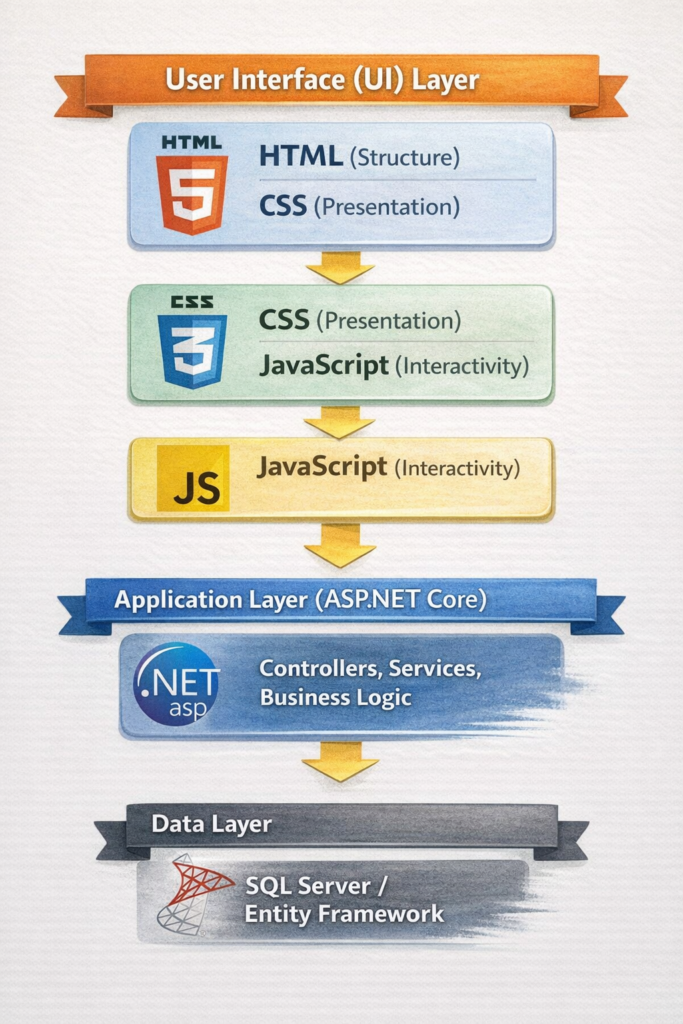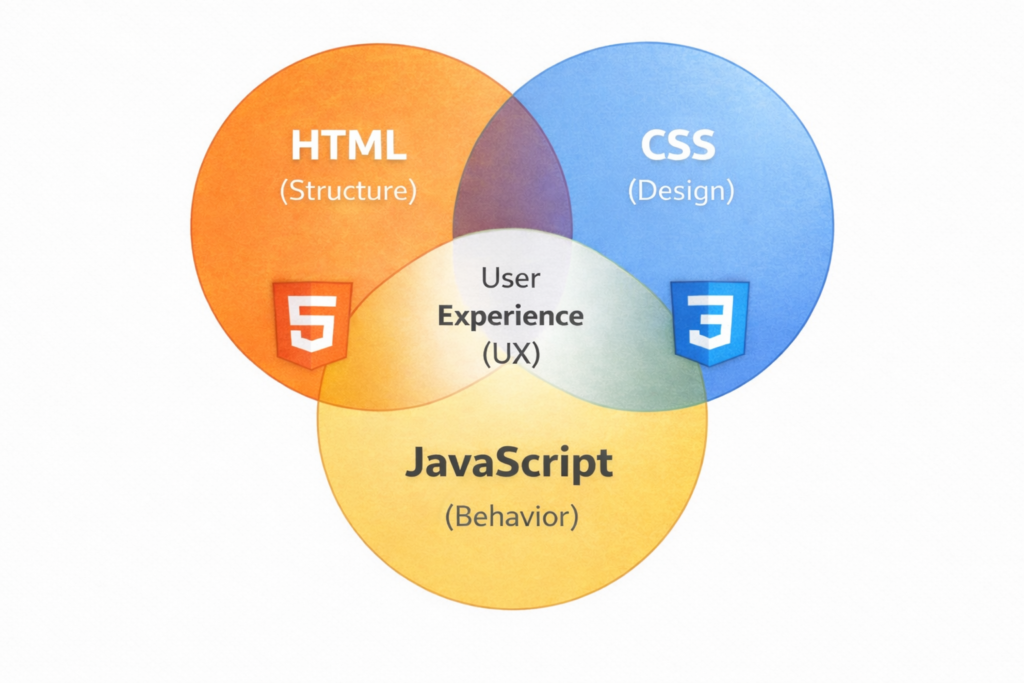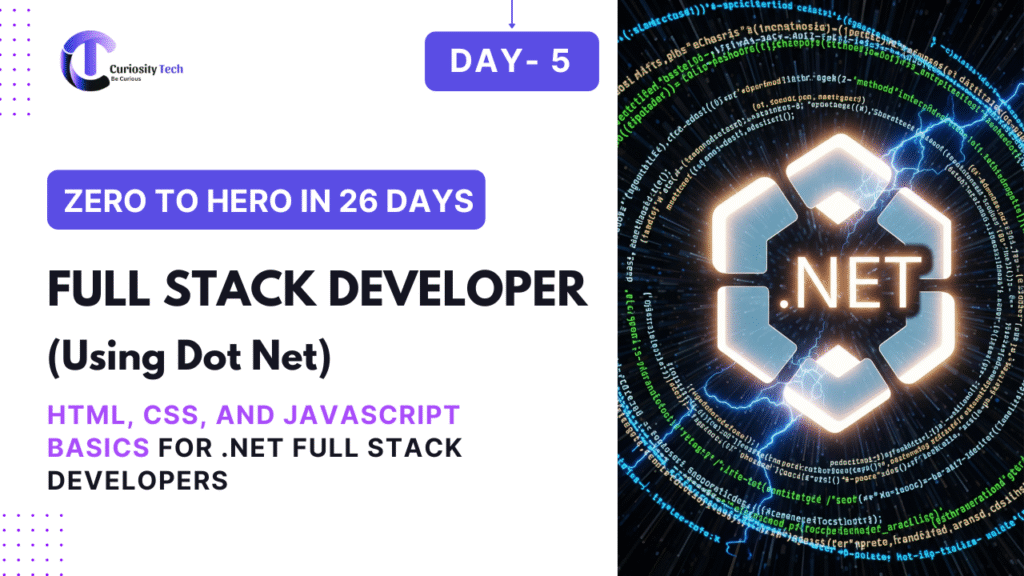When we talk about becoming a .NET Full Stack Developer, many learners immediately jump into C#, ASP.NET Core, and Entity Framework. But here’s a reality check: without mastering the building blocks of the web—HTML, CSS, and JavaScript—you’ll never truly be a full stack professional. These three technologies form the frontline interface that connects users with your robust .NET back-end.
At CuriosityTech.in, we’ve seen countless learners who excel in backend coding but struggle to present their work beautifully on the browser. This is why our project-based training ensures every student not only codes but also designs, integrates, and tests real web interfaces.
1. HTML – The Skeleton of the Web
HyperText Markup Language (HTML) provides the structure of a web page. For a .NET developer, understanding HTML tags is crucial because your backend data eventually needs to be displayed inside these elements.
Core Elements Every .NET Developer Must Know:
- <div>: Container for layout.
- <form>: Gateway for user input (login, signup, payments).
- <table>: Displaying structured data from SQL Server.
- <a>: Linking resources, APIs, or navigation.
- <img>: Integrating visual assets dynamically.
Practical .NET Use Case : Creating a registration form that feeds directly into an ASP.NET Core controller.
2. CSS – The Styling Language
Cascading Style Sheets (CSS) makes your applications look polished. Users don’t care how efficient your backend logic is if the UI looks dull.
Must-Learn CSS Concepts:
- Selectors & Classes – Targeting specific elements.
- Flexbox & Grid – Modern layout systems.
- Responsive Design – Making apps mobile-friendly.
- Animations & Transitions – Enhancing user experience.
Practical .NET Use Case : Styling Razor pages with responsive grids to display products in an e-commerce app.
3. JavaScript – The Brain of the Browser
JavaScript (JS) adds interactivity. For .NET developers, this is where AJAX calls, API consumption, and DOM manipulation come into play.
JavaScript Essentials:
- Variables & Functions – Reusable logic.
- DOM Manipulation – Dynamically changing HTML & CSS.
- Event Handling – Clicks, form submissions, validations.
- Fetch API & AJAX – Talking to your ASP.NET Web API without reloading.
Practical .NET Use Case: A shopping cart that updates instantly without refreshing, powered by ASP.NET APIs and JS fetch calls.
Hierarchical Diagram: Full Stack Layers

Description: This hierarchy shows how frontend basics (HTML, CSS, JS) directly interact with the ASP.NET Core backend and eventually with the database layer. Without mastering the top layer, a full stack developer cannot bridge the gap between user and server.
Infographic Idea

- A 3-circle Venn diagram where:
- Circle 1 = HTML (Structure)
- Circle 2 = CSS (Design)
- Circle 3 = JavaScript (Behavior)
- At the intersection: “User Experience (UX)”
Caption: “When structure, design, and behavior come together, you create a powerful front-end that works seamlessly with .NET backends.”
Why CuriosityTech.in Focuses on These Skills
At CuriosityTech, our philosophy is simple: practice over theory. Students work on live projects—from login dashboards to e-commerce platforms—where frontend basics meet backend logic. By the time learners finish, they can confidently present themselves not only as developers but as problem-solvers ready for real-world challenges.
We also integrate career guidance, mock interviews, and project reviews so that students leave with both skills and confidence.
Conclusion
Mastering HTML, CSS, and JavaScript may feel “basic,” but they are the foundation of everything you’ll build as a .NET Full Stack Developer. Without them, you’re only a half-stack developer. With them, you can transform backend logic into real-world, interactive, and user-friendly applications.
At CuriosityTech.in, we make sure you don’t just learn these concepts in isolation—you apply them in projects that mirror what companies demand in 2025 and beyond.



